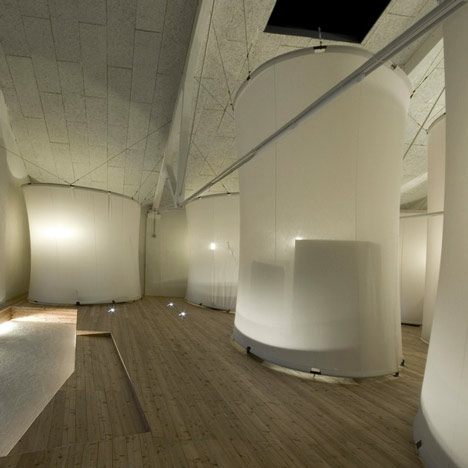
MiNO by Antonio Ravalli Architetti
Italian studio Antonio Ravalli Architetti have converted an old factory in Migliarino, Italy, into a youth hostel where guests can stay in these tall fabric-covered pods.
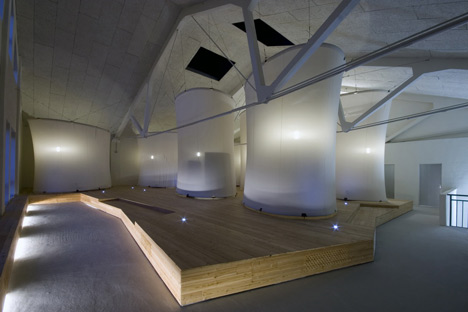
The cylinders are enclosed with translucent fabric, secured by tension cables and sitting on a wooden base to provide a kind of indoor camping space.
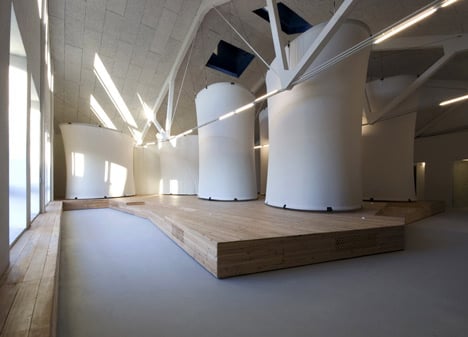
The reception is located on the ground floor, with bedrooms, bathrooms and a large lobby area housed over the two upper floors.
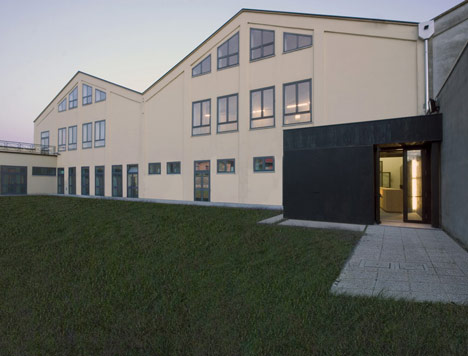
Photographs are © Antonio Ravalli Architetti.
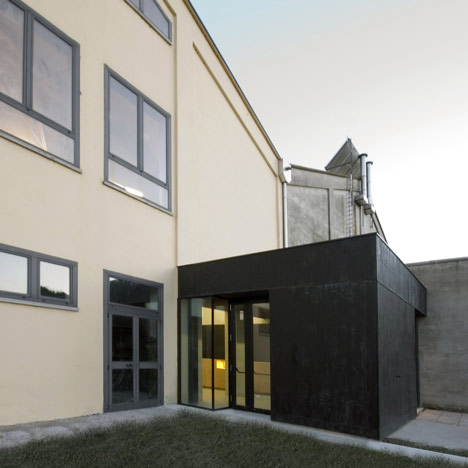
The following information is from the architects:
As a part of a program for the conversion of an old hemp factory into a new city center for the town of Migliarino, the project gains a youth hostel out of a 510 m2 portion of the building.
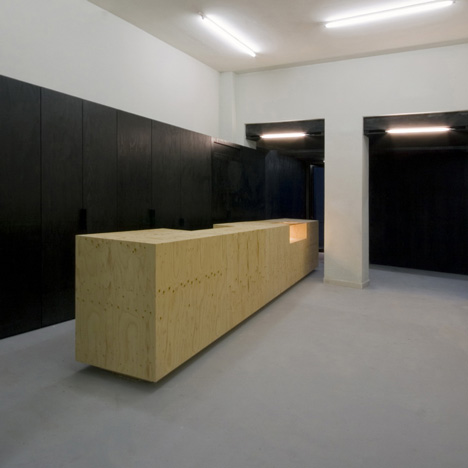
The site position is barycentric tothe touristic circuits which take place during the summer, thanks to the proximity of the Po River Delta Natural Park, but the project has to count on a reduced regional funding, 270.000 € including the furniture, and a doubtful management profitability.
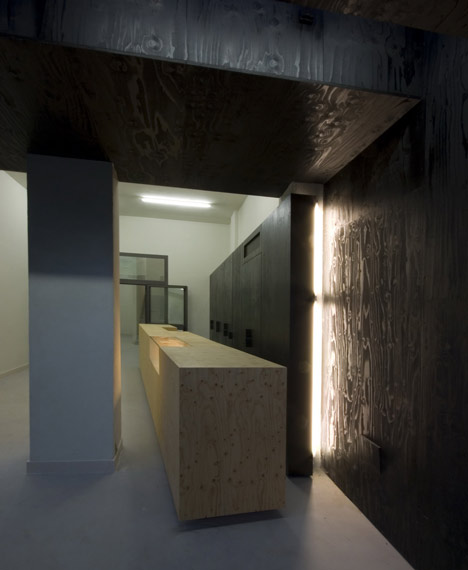
Thus the management aspects, both with the energetic and economic saving, are the principal matters.
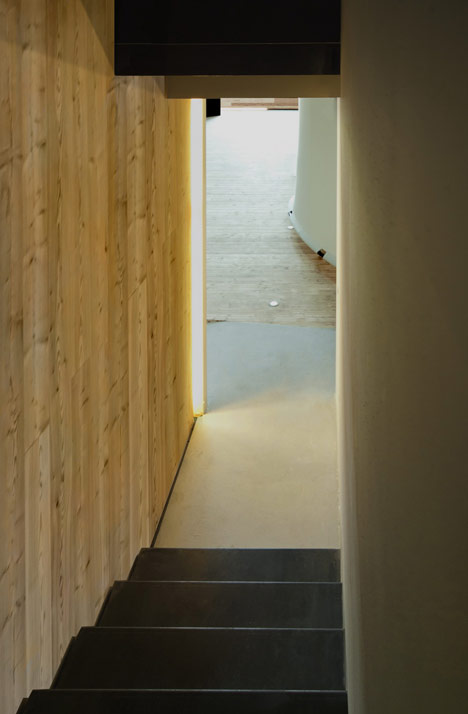
The hostel is imagined as a ‘passive machine’, in which natural air fluxes are conveyed in order to obtain climatic benefits, while the systems distribution and the morphological disposition of the rooms, conceived as to minimize the utilized elements and technologies, allow an elastic hosting capacity: the highest during the spring and the summer, or in case of special events, reduced to the essential during the low seasons.
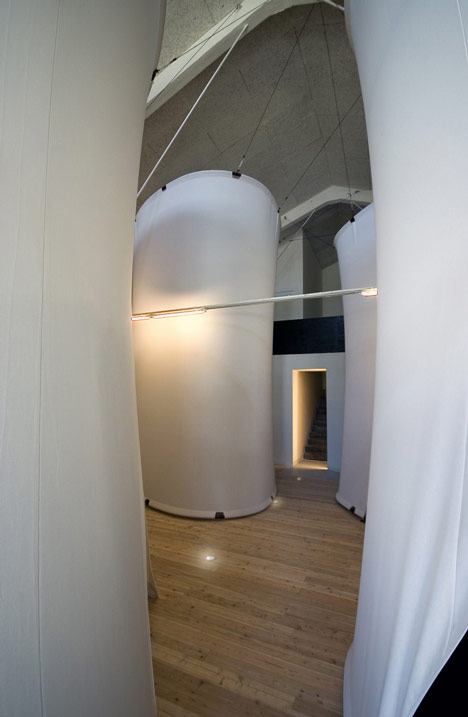
While the reception and the facilities are located on the ground floor, the second level presents a single big space with all the windows on just one side.
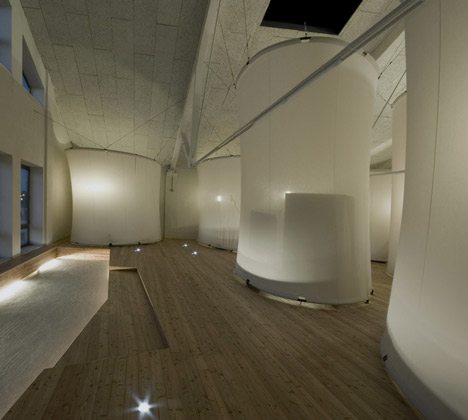
Four rooms for 2-3 persons each, bathrooms and a staircase are disposed on two levels on the other side.
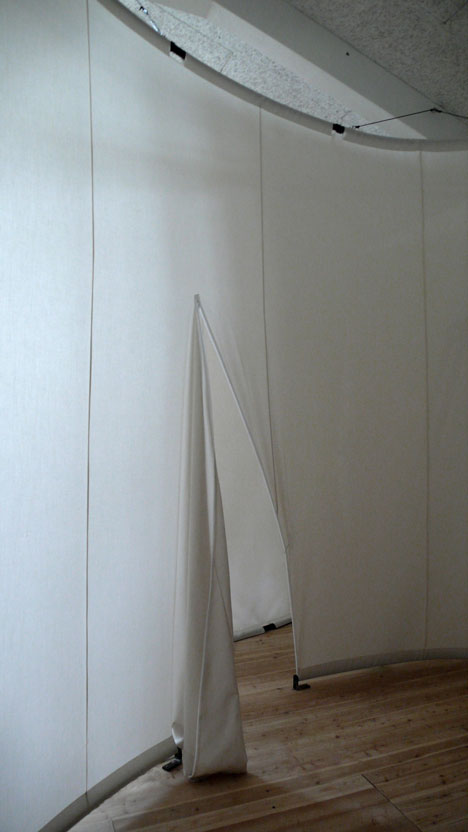
These compose a volume which, compact and well-defined, can be air-conditioned with traditional tools. In the main space instead, the air conditioning is based on passive ventilation, eased by the position of the windows on the north side and by two ventilation tower located on the roof.
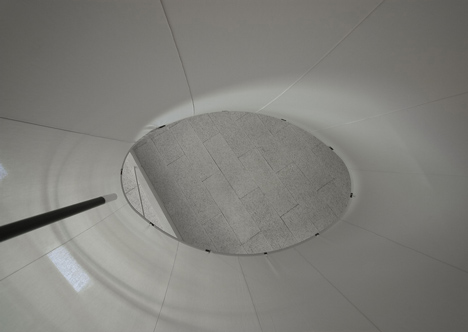
The impossibility of this space to be divided in more units, due to the uniqueness of light and air provenance, suggests an alternative solution to the dormitory: like an indoor camping, autonomous cells are placed, enfolded in light wrapping.
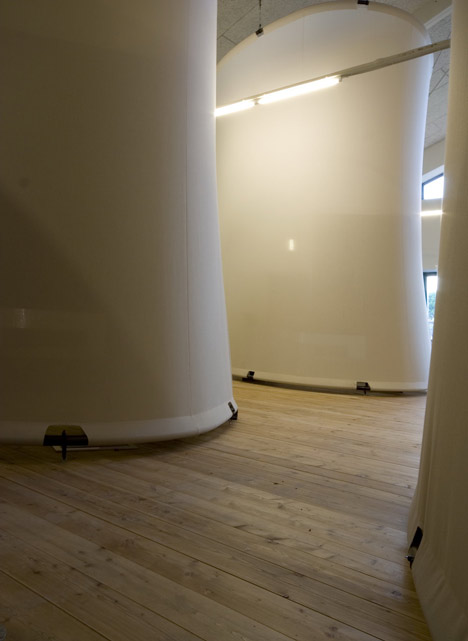
Not just physically, but also climatically independent ‘rooms’: a punctual air-conditioning system permits to choose which ones to ‘turn on’. The entire system net is located under the inspectionable wood platform, which works as a connective tissue for the cells.
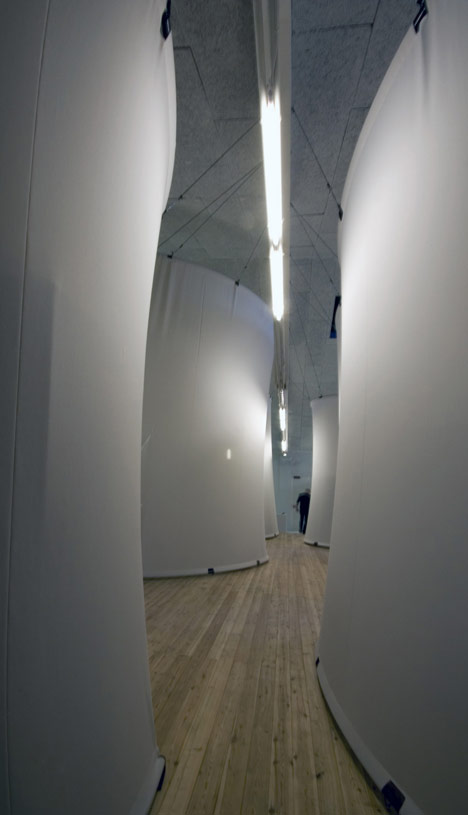
The difference in height marks the transition from the more intimate space of the ‘rooms’ to the common daily area. The movement of the platform perimeter creates occasions for sitting and relaxing, cosy niches in which to read or surf the net.
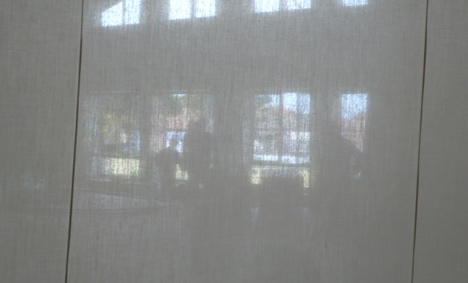
The space remains fluid, though allowing a multiplicity of distinct uses, while its plasticity is enhanced by the monochromaticity of the introduced elements and furnitures.
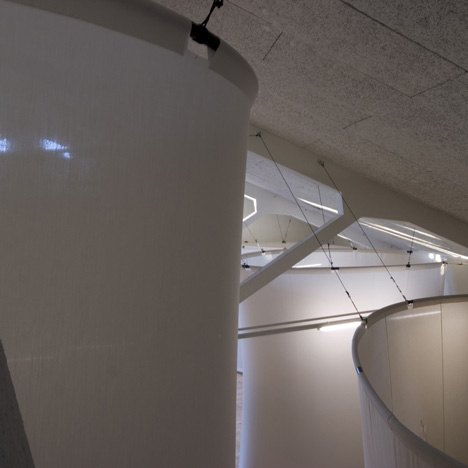
project: MiNO, Migliarino’s new youth hostel
location: Migliarino, Ferrara, Italy
year: 2010
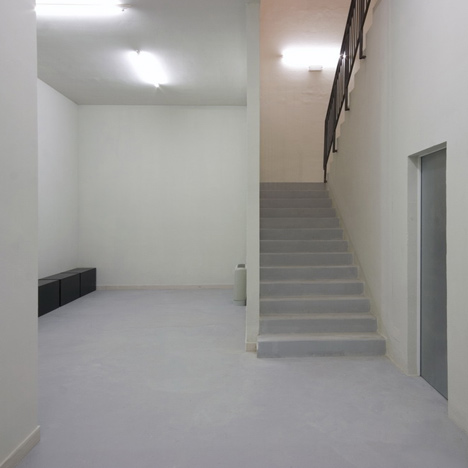
architects: Antonio Ravalli Architetti / Antonio Ravalli, Simone Pelliconi, Valentina Milani, Lorenzo Masini, Giuseppe Crispino
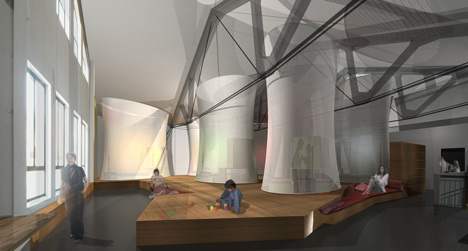
client: Comune di Migliarino (FE)
category: hostel
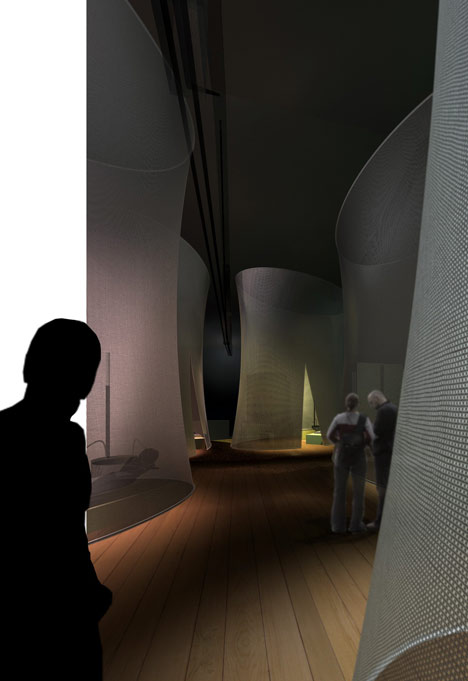
area: 510 m2
materials: wood, concrete, fabric
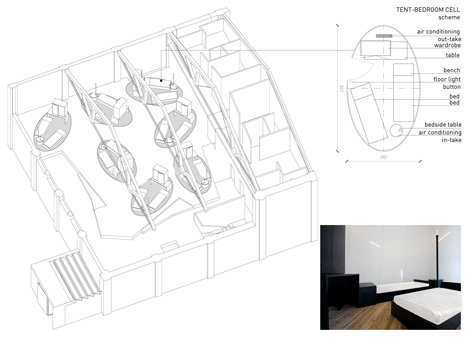
Click for larger image
See also:
.
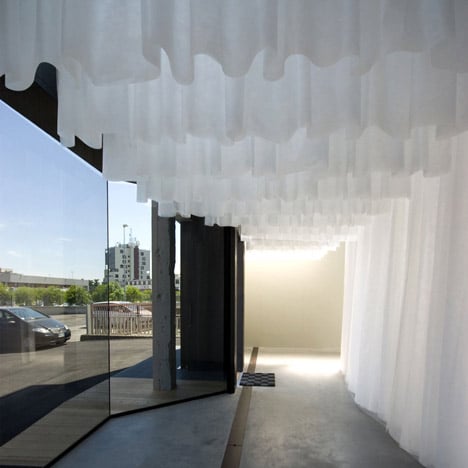 |
 |
 |
| Art Gallery Showroom by Antonio Ravalli Architetti | Textile Shipping Containers by Overtreders W | Nagi by Eiri Ota and Irene Gardpoit Chan |